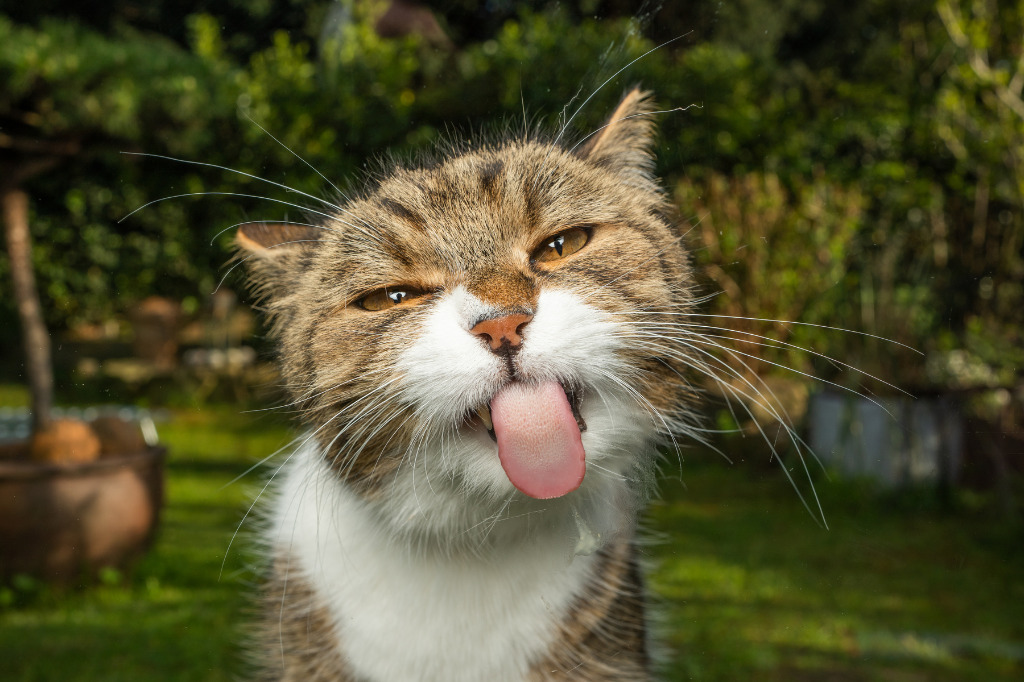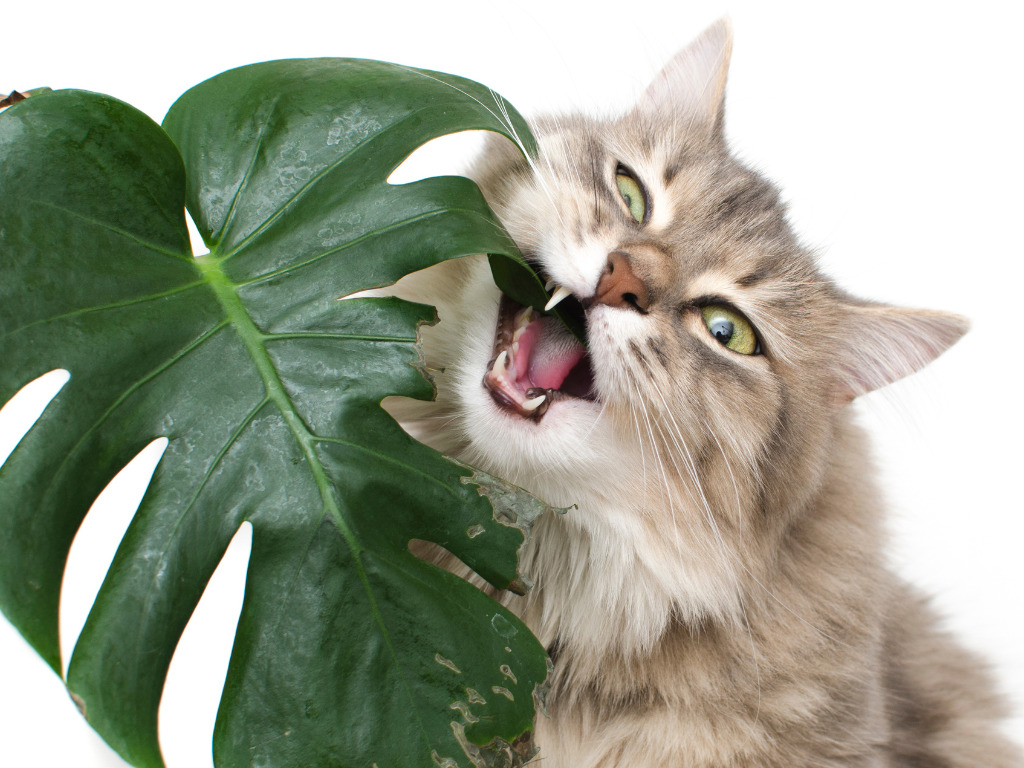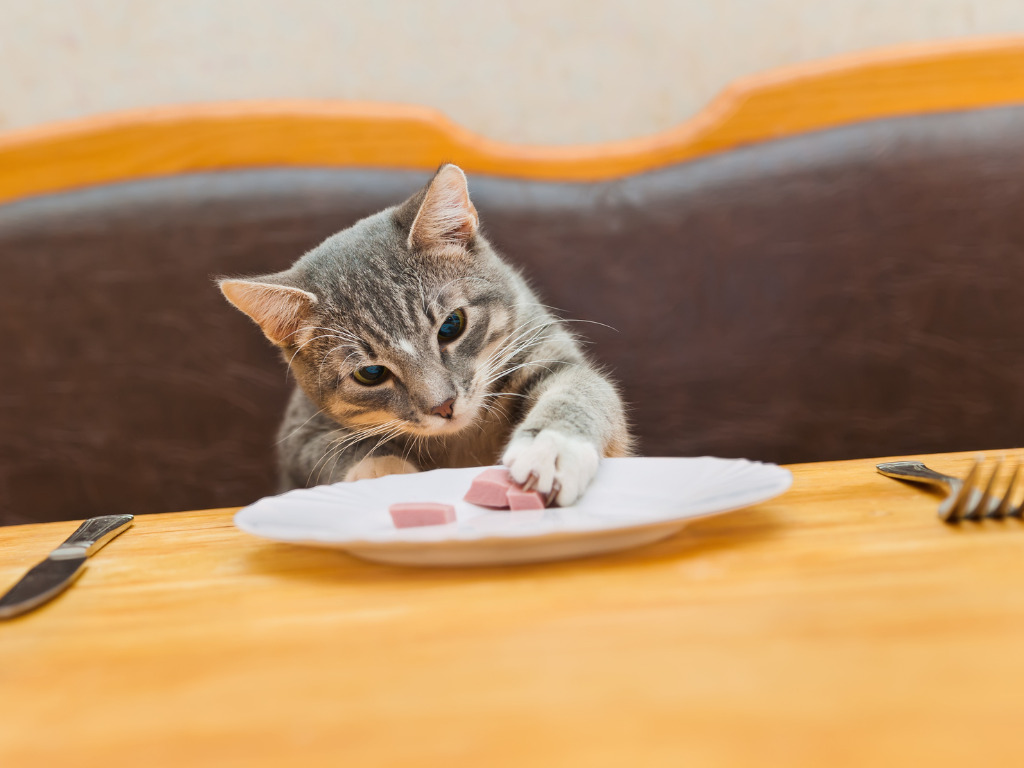6 Mins Read
Cats on a plant-based diet could be healthier than those fed meat, with owners reporting fewer visits to the vet, reduced medication use and assessments of severe illness, and more vets describing vegan cats as healthy, according to a new study. It comes two years after similar studies found that vegan diets can be beneficial for cats and pets.
Published in the peer-reviewed journal Plos One, the study surveyed 1,369 cat owners, 9% (or 127) of whom fed their pets a vegan diet. Examining 22 specific health disorders, the researchers found that 37% of cats on a plant-based diet experienced at least one of them, versus 42% of cats eating conventional meat-based foods.
Of these disorders, 15 were most common in meat-eating cats, and seven in vegan felines. And while most differences were not statistically significant, the plant-based cats scored higher on all health indicators – the number of health disorders per unwell cat decreased by 16% when fed a vegan diet.
In the year-long study, cats on a plant-based diet were found to experience a 7% reduction in veterinary visits, a 15% drop in medication use, a 55% decrease in progression onto a therapeutic diet, a 4% fall in cats being assessed as unwell by vets (and 8% for more severe illnesses), and a 23% decline in the number of owners finding their cats have more severe illnesses.
Cats have always been a carnivorous species, and meat has long been thought to be essential to their well-being. However, study lead Professor Andrew Knight argues that biologically, cats need a specific set of nutrients, not meat. They require a high-protein diet with certain nutrients (like taurine and vitamins A and B12) that are most common in meat.
But vegan cat food – a $9.2B market that’s expected to nearly double by 2030 – can contain these nutrients as supplements, either produced synthetically or sourced from certain plants. Meat-based cat food can also require added supplements, and Knight told the Guardian that the same supplements are used for vegan food to make sure it’s nutritionally sound: “There’s no scientific reason why you can’t supply all the necessary nutrients through plant additives.”
He added: “Modern vegan diets produced by pet food companies use plant, mineral and synthetic sources to supply all needed nutrients. They also lack hazards such as animal-sourced allergens that occur within meat-based pet food. We therefore expect to see health outcomes as good or better, when cats are fed nutritionally-sound vegan diets, and that’s exactly what this very large-scale study shows.”
The research findings echo a similar study co-authored by Knight two years ago, which examined the wider pet food category. That research also found that vegan pet food can have “as good – or better – health outcomes on plant-based diets as they did when fed on meat pet foods, provided these were carefully formulated with additional synthetic nutrients.”
In a piece about the research published on The Conversation, authors Alexandra Whittaker, a Senior Lecturer at the University of Adelaide’s School of Animal and Veterinary Science and Andrea Harvey, Veterinary Specialist & PhD scholar (wild horse ecology & welfare) at the University of Technology Sydney, wrote that the results of the Plos One study were encouraging, but pointed out that the study only involved 127 cats on a vegan diet, which was not enough to be statistically significant, and that given it was a survey study, it was not possible to confirm everything the cats ate during the study. They also noted that it wasn’t clear how long the cats were on the vegan diet for, which is key information given that it can take time for many diseases to develop.
A growing body of research

The same year, a study of 1,026 cats found that the 18% of felines who were fed plant-based diets were more frequently reported by guardians to be in very good health. “Contrary to expectations, owners perceived no body system or disorder to be at particular risk when feeding a plant-based diet to cats,” said co-author Sarah Dodd.
At the time, this was the largest research of its kind. Older research about meat-free diets for cats had been very limited in terms of case studies. A 2006 study, compared the health status of 34 vegetarian and 52 meat-eating cats in the US, and found that no significant differences existed between the two diets. Both sets of owners described their cats as generally healthy.
The British Veterinary Association previously discouraged pet owners from feeding their furry friends alternative protein. But it’s now reviewing its advice. “There is increasing interest among pet owners around alternative diets for pets, and while there is a lot of ongoing research into the impacts of vegan diets in particular, there has been a lack of robust data mapping the health consequences of this diet over time,” Justine Shotton, the association’s senior vice-president, told the Guardian.
She added: “In light of ongoing research, the British Veterinary Association recently convened a companion animal feeding working group which will inform our recommendations going forward. In the meantime, owners should speak to their vet if they are considering changing their pet’s diet.”
The new research aligns with guidelines published by industry body UK Pet Food in February. “With advancing technology and research, nutrients that were previously only available from animal-based ingredients can now be made synthetically or be sourced from novel ingredient,” it stated, adding that these do require careful formulation by highly qualified pet nutritionists. Overall, however, it found that “there is little evidence of adverse effects arising in dogs and cats on vegan diets”.
Consumer attitudes towards alternative pet food

In the UK, where Benevo debuted the first plant-based cat food in 2005, a 2022 survey by The Vegan Society revealed that 40% of owners who feed their cats a plant-based diet do so because they believe it’s healthier. Meanwhile, nearly a quarter of pet parents cited environmental reasons – in the US, for example, producing dry cat and dog food equates to between 25-30% of all emissions related to animal consumption by Americans.
Globally, dog and cat food emit around 64 million tons of carbon per year – that’s the equivalent of over 13 million cars. “Increasing concerns about environmental sustainability, farmed animal welfare and competition for traditional protein sources are driving considerable development of alternative pet foods,” the latest study states.
The Vegan Society’s poll also found that the feeding of vegan, vegetarian and reduced-meat foods was more popular in cats than dogs, despite plant-based dog food being a much more established category. Vegan dog food brands (like Wild Earth, Omni and The Pack) outnumber the number of plant-based pet food producers dedicated to cats. That stands to reason, given that dogs are the most popular pet across the world, with one in three homes having a dog, as opposed to a quarter of people who own cats.
And for consumers who are still firm on cats’ status as obligate carnivores, some brands are now making cultivated pet food to allay these concerns. In 2021, Vienna-based BioCraft Pet Nutrition (formerly Because Animals) debuted the world’s first cultivated meat pet food with its cultured mice. Other brands in the cell-cultured cat food space include Bond Pet Food, which makes slaughter-free chicken for dogs and cats, and Marina Cat, producer of the world’s first cultivated fish for cats.



